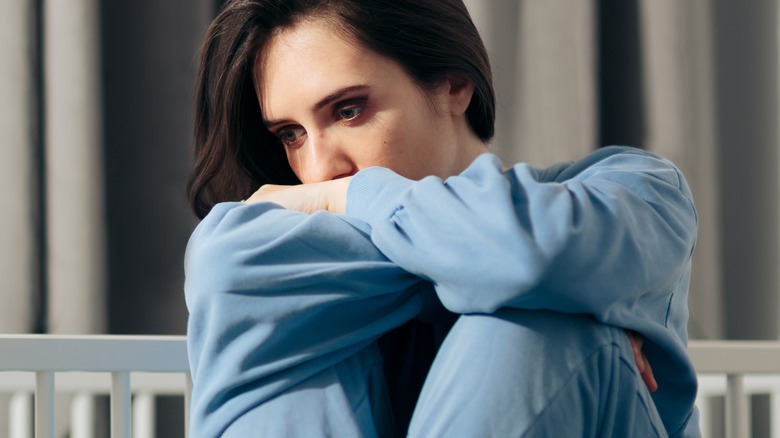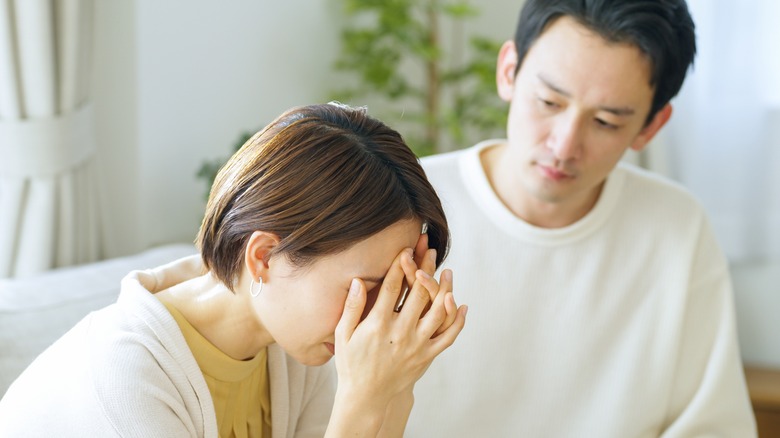Why Early Pregnancy Loss Can Occur To Anyone
Early pregnancy loss, also known as miscarriage, is a common occurrence, affecting anywhere from 10% to 20% of pregnancies, according to the Mayo Clinic. Despite what you may have heard or been told, it's not caused by anything the mother does, such as exercising, having sexual intercourse, or working. In fact, anyone can experience early pregnancy loss, and understanding why it happens can help you heal emotionally from this loss.
Early pregnancy loss happens when you spontaneously lose a pregnancy before the 20th week (via Mayo Clinic). Some people may not even be aware that they're pregnant when they miscarry, as most occur before the 12th week. Symptoms can include vaginal spotting or bleeding, pain or cramping in the abdomen and lower back, and passing fluid or tissue through the vagina. You're more at risk for miscarriage if you're older than 35, have had two or more consecutive miscarriages, have a chronic condition, such as uncontrolled diabetes, or have uterine or cervical conditions. If you suffer from an early pregnancy loss, your doctor might recommend letting it progress naturally, taking medication to speed the process, or undergoing minor surgical treatment.
Causes of early pregnancy loss
About half of all early pregnancy losses are caused by the embryo not developing properly, according to the American College of Obstetricians and Gynecologists. This usually happens when the egg or sperm has an abnormal number of chromosomes. When they come together to form the embryo, that embryo will then also have an abnormal count. Chromosomes are found in each cell of the body and carry genes, so when development doesn't happen properly, it can lead to miscarriage.
There are also other causes of miscarriage, according to Stanford Children's Health. Hormone problems in the mother, like low progesterone or a thyroid problem, can contribute. Other common issues include high blood pressure, diabetes, uterine issues, infection, autoimmune conditions, injury or trauma, and exposure to toxic substances.
The loss of a pregnancy at any point can be emotionally and physically challenging. It's important to find support and counseling for the mother and family if needed.


